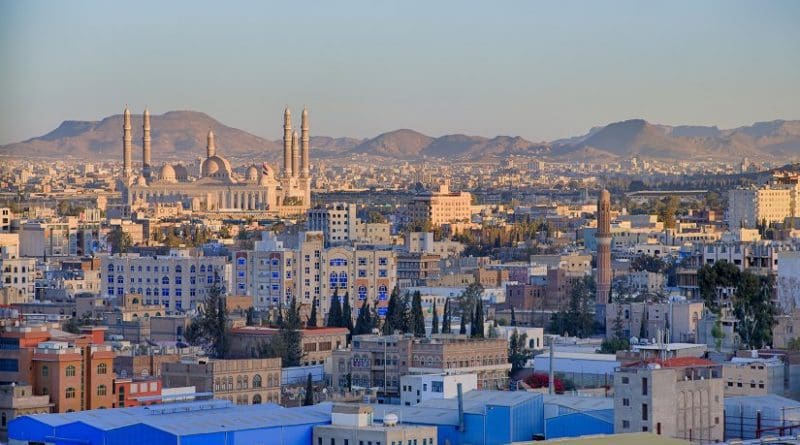Yemen: President Refuses To Sign Gulf Plan In Private
By VOA
By Edward Yeranian
An accord reached through the Gulf Cooperation Council that would have paved the way for the resignation of Yemeni President Ali Abdullah Saleh fell through after he insisted opposition parties attend a public signing ceremony at the presidential palace.
It was another day of intense political drama in the Yemeni capital, and the day ended much as it had started – without an agreement for President Ali Abdullah Saleh to step down. The president and the opposition blamed each other for the impasse and diplomats were left with little to show for their efforts.
Saleh spoke on government TV to announce he would not sign the Gulf Cooperation Council plan, unless the opposition came to the presidential palace for a formal signing ceremony.
He says opposition leaders should come to the presidential palace for the ceremony, because he and they will be part of the interim government to be formed by the agreement. He is to preside over the interim government for 30 days before stepping down, and the vice president is to take over for the remaining 60 days.
The president also accused the opposition of running away from the agreement, insisting that it would bear the responsibility for any bloodshed that resulted from violence that might ensue.
He says that if the opposition wants to push the country towards a civil war, it must bear the responsibility for that, as well as the blood that will be spilled if the agreement falls through.
A top leader of the opposition Common Forum parties, Hassan Zeid, rejected Saleh’s charge his group is responsible for the impasse. He insisted it is the head of the Gulf Cooperation Council, which is mediating, that decided when and where everyone should sign the agreement, and not up to the parties, themselves.
One opposition leader, Mohammed al Qahtan, told the French Press Agency the opposition would “not take part in any signing (ceremony) at the presidential palace.” He also urged the U.S. and Saudi Arabia to exert pressure on Saleh to sign the agreement.
Another drama occurred when supporters of Saleh blocked Western diplomats and the head of the Gulf Cooperation Council that were negotiating the agreement at the United Arab Emirates’ embassy. The diplomats were later flown out by government helicopter.
Hundreds of other Saleh supporters blocked roads leading to the presidential palace, the airport, and the capital’s Tahrir Square, scene of opposition demonstrations.
Opposition activists told Arab satellite channels they would continue their protest until the president steps down. Tens of thousands of protesters continue to camp out in public squares in towns and cities across the country, demanding Saleh’s resignation.

